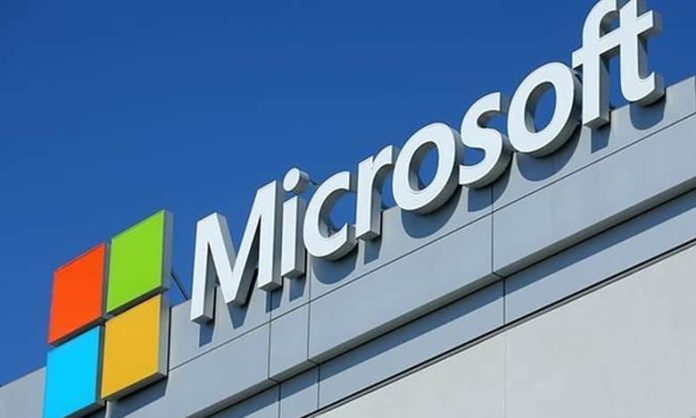Washington: Microsoft’s 50th anniversary celebration took a dramatic turn on Friday when employees staged a pro-Palestinian protest, condemning the tech giant’s alleged involvement in supplying artificial intelligence tools to the Israeli military, reported the Siasat.
The protest began during a keynote address by Microsoft AI CEO Mustafa Suleyman, who was unveiling future plans for the company’s AI assistant, Copilot. As Suleyman spoke, employee Ibtihal Aboussad stood up and shouted, “Mustafa, shame on you,” accusing Microsoft of complicity in genocide by aiding Israel with AI-powered weaponry.
“You say you use AI for good, but Microsoft sells AI weapons to the Israeli military. Fifty-thousand people have died, and Microsoft powers this genocide in our region,” she said before throwing a keffiyeh scarf—a symbol of Palestinian solidarity—onto the stage.
Suleyman responded, “Thank you for your protest, I hear you,” but Aboussad continued accusing the company of having “blood on their hands” before being escorted out.
Later in the program, another employee, Vaniya Agrawal, disrupted a segment that featured Microsoft’s top leadership—Bill Gates, Steve Ballmer, and Satya Nadella—sharing the stage for the first time in over a decade.
The protests come amid growing scrutiny of the tech industry’s role in global conflicts. Earlier this year, an Associated Press investigation revealed that AI models from Microsoft and OpenAI were used by the Israeli military to select bombing targets in Gaza and Lebanon. The report cited a 2023 airstrike that mistakenly hit a Lebanese civilian vehicle, killing three young girls and their grandmother.
Microsoft issued a statement saying, “We provide many avenues for all voices to be heard,” but emphasized the importance of avoiding business disruptions. The company did not confirm if any disciplinary action was taken. However, both protesters lost access to their work accounts after the incident, which could indicate termination.
The event, broadcast live, served not only as a celebration of Microsoft’s legacy but also became a flashpoint for internal dissent, reflecting wider debates within the tech sector about ethical responsibility in times of war.




